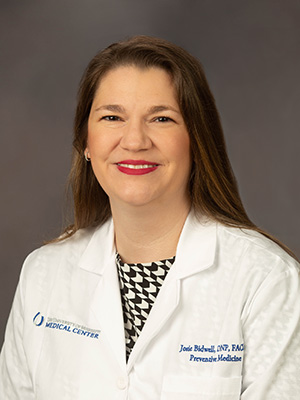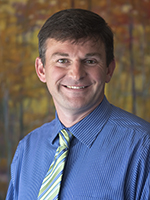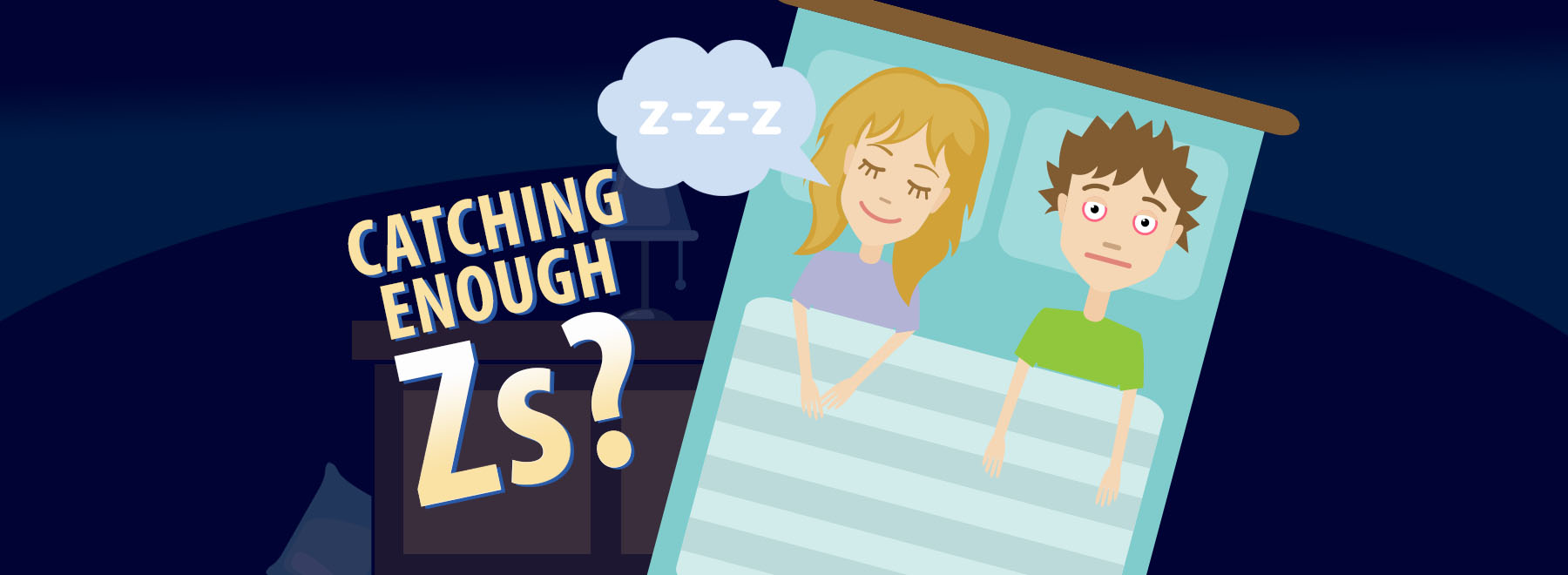UMMC experts debate validity of recent sleep study findings
Note: This story appears in the July 2018 edition of CONSULT, the monthly e-newsletter published by the UMMC Division of Public Affairs that focuses oncutting-edge clinical advances, innovative educational programs and groundbreaking research occurring at UMMC. To receive CONSULT in your email, visit www.umc.edu/CONSULT to sign up.
If you nod off before reaching the end of this sentence, you may want to read on when you finally wake up.
Sleep deprivation is a serious health concern that can shorten your life, but a new study suggests there may be a remedy other than getting more sleep during your work week: getting more sleep on your days off.
That assumption, published in the May edition of the Journal of Sleep Research, conflicts with what you may have been told – that you can’t “catch up” on sleep.
In fact, experts at the University of Mississippi Medical Center, while intrigued by the research, say it’s too soon to recommend day-off sleep-ins as the means to wakeful bliss.

“I believe there should be more research to validate those findings,” said Dr. Josie Bidwell, associate professor of nursing and a family nurse practitioner. “Still, the notion that we can catch up on sleep is one that patients have. Based on the study, it looks like it could be possible.”
Conducted in Stockholm, Sweden, at the Stress Research Institute and Karolinska Institute, the investigation used data from more than 38,000 adults collected for a period of 13 years.
Among its observations: People under 65 who slept for five hours or less each night had a 65 percent greater mortality rate than those who grabbed six or seven hours – unless they slept eight hours or more on their days off. (For those 65 or older, the link between sleep habits and mortality disappeared.) For those who “caught up,” an increased death risk disappeared.

“There is a lot of evidence that you can negate some of the adverse effects of sleep deprivation by catching up on sleep,” said Dr. Allen Richert, associate professor of psychiatry and human behavior and director of the Sleep Disorders Fellowship at UMMC. “Just missing one hour a night over a two-week period can result in the same kind of impairments that come from staying up all night.”
He said those impairments come calling whenever you try to drive a car, play a musical instrument or walk a tight rope.
“If you start sleeping on a regular schedule, you can erase those psychomotor deficits within about three days by getting a normal amount of sleep.”
But he said one problem with studies like this one is “they don’t do a good job of establishing causation. There is a connection between lack of sleep and mortality, but we don’t know the causation.”
That is, there may be some other issue causing sleep deprivation and it may be the real problem.
“Think about it this way,” Richert said. “Consider everybody who has died from cancer. Every one of them had a nose, but that doesn’t mean that everyone who has a nose is going to die from cancer.”

Dr. Danny Burgess, professor of psychiatry, is also cautious about the study. About 80 percent of the patients he sees need to work on getting more sleep, Burgess said. But he would rather they get a consistent and sufficient amount of sleep routinely.
“A lot of them believe, ‘I can burn myself out during the week and catch up on weekends,’” Burgess said. “Then they burn themselves out again the following week.
“I haven’t seen it work out that well for them in the long term. Sometimes weekends can be busy, too. After two or three weekends of that, you’re really in a mess.”
Bidwell sees patients who believe they can “store up” sleep on their off days to stave off the effects of a rough, sleep-deprived week ahead.
“But you can’t be a sleep camel,” she said. A body needs regular upkeep to work well, she said, comparing it to a machine.
“I don’t take good care of my car,” she said. “I don’t get the oil changed enough. It’s a bit sluggish. It needs maintenance to keep running well.
“It’s the same with your body and your mind. You want to be thriving, not just surviving.”
Which brings her to what she says is one of the limitations of the sleep study: It does not explore sleep routines or if the people studied changed their sleep patterns during 13 years.
“It focuses on sleep quantity, not quality – how long does it take to fall asleep? Do you feel rested after sleeping seven or eight hours?
“This study shows lack of sleep could affect mortality, but I would like to see people have better sleep patterns. The bedroom should be for sleeping and relations only.”
What’s at stake? According to UMMC experts, diabetes, heart disease, obesity, depression, anxiety leading to panic and more – conditions that bad sleep habits can trigger or aggravate.
“You are less able to cope with pain,” Burgess said. “You don’t feel emotionally equipped to handle anxiety, so you feel depressed about that.”
If sleep apnea – a disorder causing breathing to repeatedly stop and start – is the underlying problem, “it’s terrible for your heart health, for your blood pressure,” Bidwell said.
Bidwell, who sees some of her patients at the Lifestyle Medicine Clinic in UMMC’s Lakeland Family Medicine Center, coaches them in lifestyle changes that include sleep behaviors.
Bidwell, Richert and Burgess offer five suggestions:
• Get about eight hours of consecutive sleep in each 24-hour period. That’s better than four here and four there.
• Don’t use the bedroom to watch TV, use your smartphone, pay bills, sort or fold laundry, or anything other than what its name implies.
• Stop all work at least a couple of hours before bedtime and use that time to listen to relaxing music, take a warm bath or shower.
• Sleep in a cool room but keep your extremities warm.
• If insomnia persists, seek help from a health professional, who may recommend a sleep study to find the fundamental problem.
“I’m not so certain that insufficient sleep causes early mortality,” Richert said, “but I am a big proponent of getting a sufficient amount of sleep. Because I am fairly certain that lack of sleep causes cloudy thinking. It makes you more likely to have car accidents.
“And most of the time, when people need sleep, they just are not happy.”



